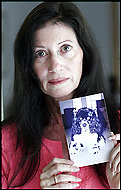I was feeling down one recent weekend. As luck would have it, I was doing some research on what makes us happy.
Turns out, we are not very good at knowing what brings us happiness. Research by Dan Gilbert bears this out.
One of the best kept secrets on what makes us happy is doing for others. Material goods or achievements are no match for giving of ourselves in promoting our long term happiness.
A 2012 study by Elizabeth Dunn and her colleagues at the University of British Columbia shows that toddlers under the age of two are happier when giving treats to others rather than receiving goodies themselves. But the good news about our capacity for feeling good about giving doesn’t stop there. The study showed that children are happier when they give their own treats away than giving an identical treat away that doesn’t belong to them. (http://news.ubc.ca/2012/06/19/giving-makes-young-children-happy-ubc-study-suggests/)
The results of United Healthcare/Volunteer Match Do Good Live Well 2010 on-line study shows that 96% of respondents report feeling happier as a result of volunteering (http://unlimitedloveinstitute.org/wp-content/uploads/2013/10/ITS-GOOD-TO-BE-GOOD-2014-Biennial-Scientific-Report-On-Health-Happiness-Longevity-And-Helping-Others.pdf)
So, when my husband came home from his volunteer efforts, taking photographs of cats to increase their likelihood of getting adopted, I asked him to show me his pictures. Immediately, I felt better as I supported and encouraged him in his efforts and hobby. I discovered, firsthand, how taking the focus off of me and my ruminations and putting my energies, instead, into helping someone else is a free and easy way to get my happy on.
I highly recommend you give it a try and if you like, share your experience.
If my example didn’t inspire you, this video of Lilica, the dog, and what she does for her family surely will.
(professional website: http://www.bethlevinecounseling.com)



![get-attachment[1]](https://onbeinglifelessons.com/wp-content/uploads/2014/07/get-attachment1.jpg?w=300&h=223)

